Dr. Louise Loomis is announced as this year’s Keynote Speaker for the Alpha Kappa State 75th Fall Conference, to be held on Saturday, November 1, 2014 at the Courtyard by Marriott, 4 Sebethe Drive, Cromwell, CT 06416. She will be presenting Teaching to Abundance: Brainwise Learning with Our Natural Thinking.
For more information about AKS 75th Fall Conference please visit for details: http://www.deltakappagamma.org/CT/index.php
http://www.deltakappagamma.org/CT/Documents/Keynote%20Fall%202014.pdf
Click on link for copy of Participants Feedback of the presentation:AKS 75th State Conference_11_1_14 Feedback

![Lou_headshot_3[1]](https://thinkwellcenter.edublogs.org/files/2014/09/Lou_headshot_31-ytagfr-290x300.jpg)
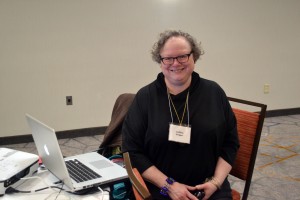
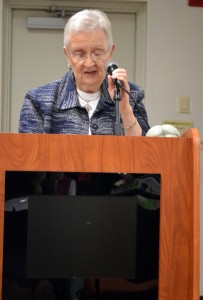
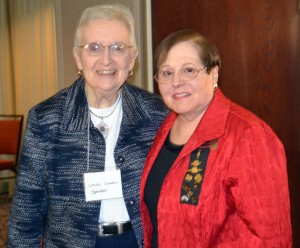
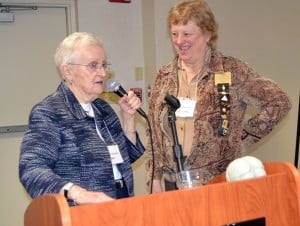
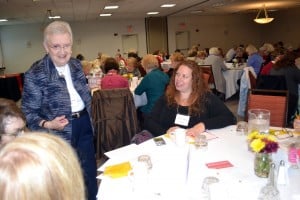
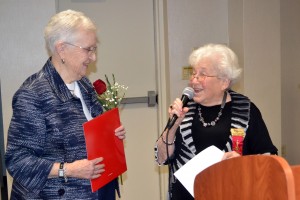
AKS 75th State Conference -November 1, 2014
“Teaching to abundance: Brainwise Learning with Our Natural Thinking Skills”
Participants Feedback Summary
I learned:
• How many neurons we have and the fact that children do much pruning.
• About the impact of trauma and imprinting.
• The great capacity of our brains.
• We need to address “of conversation” and loss of time for reflection.
• Some newer details from previously learned methods. Thank you.
• How to analyze thinking w/ different frameworks (Bloom’s affective and cognitive center).
• A lot!
• Tour so good at using and IPad.
• Lots of brain/thinking information.
• A lot about brain research.
• That the brain has 100,000,000,000 neurons.
• About the fact that visual becomes an imprint of normal.
• How powerful the brain is!
• That I used metacognition before its time in my classroom – for all pieces of writing.
• Alot!
• About the use of the cognitive six.
• To ask did I give you enough information.
I wonder if:
• Schools will begin placing more emphasis on developing thinking skills.
• Students balk, at first when trying to get them to think.
• There are curriculums/ programs for creative problem solving/ integrated cognitive thinking.
• If you would like to be a member of AKS?
• We can learn things from everyone.
• We should educate parents into the effects of negative violent video games on their children.
• You open up your center to visitors.
• The brain will ever be completely understood.
• Students will utilize positive ways of questioning.
• Developmental stages can be addressed next time!
• Our brains can evolve enough to affect the perpetuation and improvement of the human species to continue to explore ours and other universes before the primitive brained society destroy the planet.
• Our brains can be regenerated (new neurons or connections?)
I rediscovered:
• The cognitive six and how we can apply it to everyday life.
• The power of thinking in different ways.
• The Basic Thinking skills and their meaning for us in daily life.
• How complex are brains are.
• Bloom’s Taxonomy and other points/ names mentioned throughout the talk.
• Many things.
• How trauma affects learning.
• Lots I learned in a whole semester of grad level creativity class at UConn!
• How people can learn things.
• I need to fully listen when factual information is given.
• The importance of thinking skills.
• My interest in brain research.
• I need to give more information.
• Number of neurons in brain.
• Metacognition.
• The fun of collaborative activity.
• The importance of the brain.
• That I enjoy doodling.
I was surprised that:
• I knew the names of so many whom have done brain research. I didn’t know the names and theories of so many.
• I understood so much. This was due to the well-organized presenter.
• Some situations typically thought of as convergent/ divergent are actually on a spectrum related to outside factors.
• Great to incorporate it with the trauma of children.
• Information transfer is hard.
• The number of neurons in the brain.
• We use so much in our lives in an automatic way.
• Traumatic emotional experiences affect ability of brain to learn.
• Trauma effects thinking to a great extent.
• While we (brains) are so different, we have so many similarities.
I liked:
• Using my mind to solve problems.
• The presentation – information was always put in context, practice time was incorporated into presentation.
• “I need more information “as a response when “I don’t know.”
• Your presentation involving all of us.
• Pretty much everything…lots of information presented in a humor.
• The presentation and involvement of audience.
• Being able to connect to ways to helping my students!
• Your style of interactive teaching style.
• Your calm demeanor when introducing new ideas.
• The way things you discussed clarified information.
• Coloring my mandala and the little bags of activities
• The humor interspersed throughout the presentation.
• Entire presentation.
• The review of brain parts.
• The reminder of brain wise – the cartoon.
• Applicability of activities.
• The activities we did at the table.
• The packet of goodies.
I can use:
• Your information by combining all the disciplines.
• All the information in my daily activities.
• The cognitive six are used all of the time.
• Phrases in what ways might we think about things? I need more info, etc. face saving techniques.
• All!
• The content-cognitive spectrum to discover student’s strengths and capitalize on them!
• It all!! Thank you!
• Your calm demeanor when introducing new ideas.
• I have already been introduced.
• This information with teachers and students.
• I need more information.
• The “cognitive six” in the classroom – students need opportunities for transfer.
• Cognitive Six and SPUNKI in tutor sessions for literacy volunteers at work.
• All this info in understanding grandchildren.
• The learning in daily.
• The information to help me classify the information.
• SPUNKI in classroom.